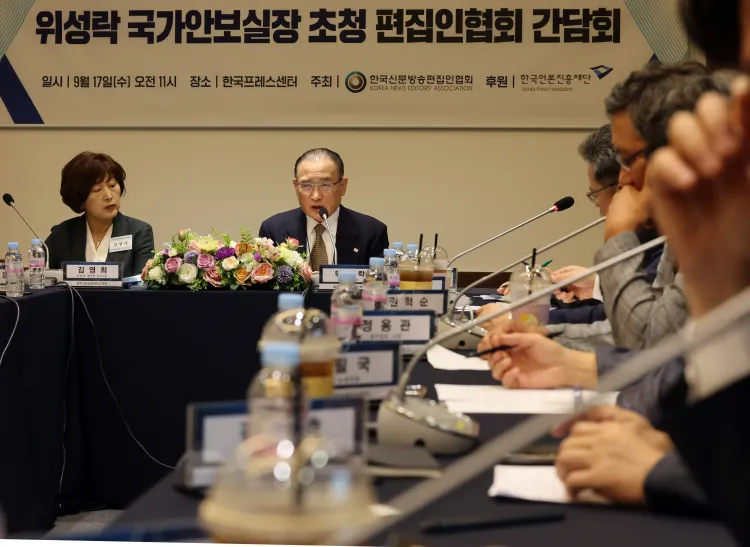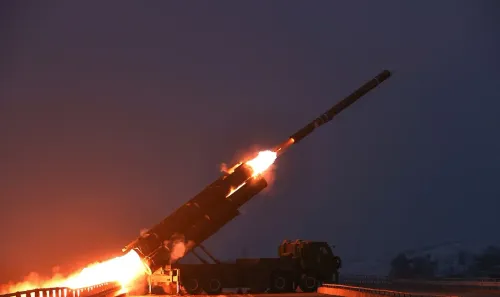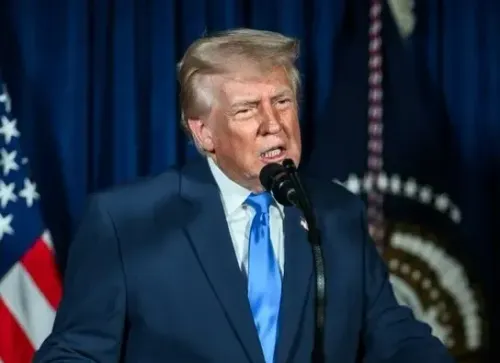Have South Korea and the US Found Common Ground on Denuclearisation?

Synopsis
Key Takeaways
- South Korea and the US have a mutual goal of denuclearisation.
- The three-stage plan involves halting, reducing, and dismantling nuclear capabilities.
- Dialogue and trust-building are essential for progress.
- Concerns about North Korea's military ties with Russia are growing.
- Trade negotiations are ongoing to protect national interests.
Seoul, Sep 17 (NationPress) South Korea and the United States have reached a consensus on the irreversible objective of denuclearising the Korean Peninsula, as stated by South Korea's National Security Adviser Wi Sung-lac on Wednesday.
Wi emphasized that the denuclearisation of the Korean Peninsula is the ultimate goal shared between South Korea and the US, asserting that this objective is unchanged regardless of North Korea's position.
He reiterated that South Korea would implement a three-stage strategy to achieve the denuclearisation of North Korea, despite North Korea's dismissal of peace initiatives proposed by South Korean President Lee Jae Myung, according to Yonhap News Agency.
"To advance towards this objective, it is crucial to first stop North Korea's nuclear and missile programs. Our approach must be gradual—first a freeze, followed by reduction, and ultimately dismantlement," Wi explained.
Wi further noted, "Although North Korea has not yet provided an immediate response, reinitiating dialogue is essential. Our government has undertaken several measures to reduce tensions while maintaining security and deterrence, and we will persist in our efforts to establish trust."
Regarding the forthcoming Asia-Pacific Economic Cooperation (APEC) summit in Gyeongju, South Korea, Wi stated there was no possibility of North Korean leader Kim Jong-un attending the event.
He also mentioned that US President Donald Trump is anticipated to visit South Korea for the APEC summit.
Wi expressed his concerns over the deepening military relations between North Korea and Russia following their mutual defense treaty signed last year, which includes provisions for immediate military assistance if either nation is attacked.
"Russia and North Korea have established a military alliance, which is particularly troubling given North Korea's advancements in nuclear and missile capabilities," he cautioned, warning of adverse impacts on inter-Korean relations, national security, and Seoul-Moscow relations.
On discussions that the South Korean military had detected intelligence indicating that Russia provided reactors for nuclear submarines to North Korea, Wi mentioned that such information had not been corroborated.
Shifting focus to economic matters, Wi stated that Seoul is actively pursuing trade negotiations with Washington while ensuring national interests are preserved.
The two nations have been grappling with differences over the specifics of the trade agreement established in July, which saw US tariffs reduced from 25% to 15% in exchange for Seoul's commitment of USD 350 billion in investments.
"It is crucial that the negotiations do not drag on unnecessarily. The key aspect is the content itself, which must be feasible, sustainable, and safeguard national interests at appropriate levels," he remarked.
When queried about concerns that trade discussions might influence security consultations, Wi asserted that tariff and security issues were "separately reaching equilibrium," while warning of potential spillover effects.
A contentious security matter includes Washington's initiative to expand the operational scope of the 28,500-strong US Forces Korea (USFK) under the concept of strategic flexibility, which critics argue could undermine USFK's long-standing focus on deterring North Korean threats.
Wi stated that the allies have held discussions while adhering to both sides' "red lines," noting that there are "certain safeguards" in place.
Regarding rumors of a potential visit by Japanese Prime Minister Shigeru Ishiba to South Korea later this month, Wi remarked, "Nothing is confirmed yet," although he noted that Seoul and Tokyo had agreed to resume "shuttle diplomacy."
Concerning Japan's recent protests regarding Korea's maritime surveys in the East Sea, Wi clarified that these activities near the easternmost islets of Dokdo are routine and that Tokyo has frequently lodged protests.
He cautioned against excessively inflating or provoking public sentiment on issues related to Dokdo, as it could imply a territorial dispute, adding, "Dokdo, as you know, is our land."










